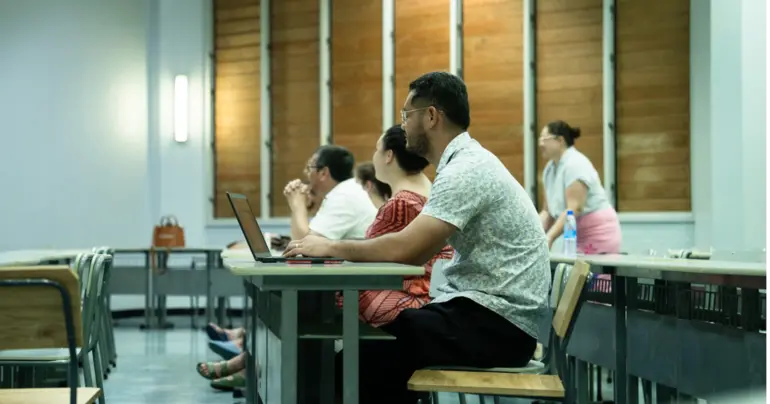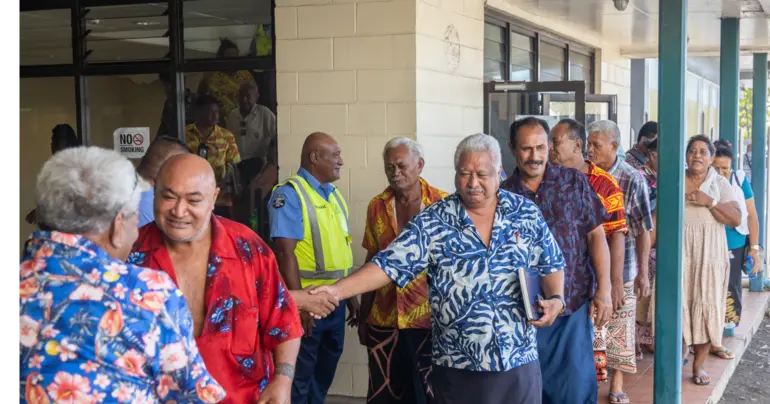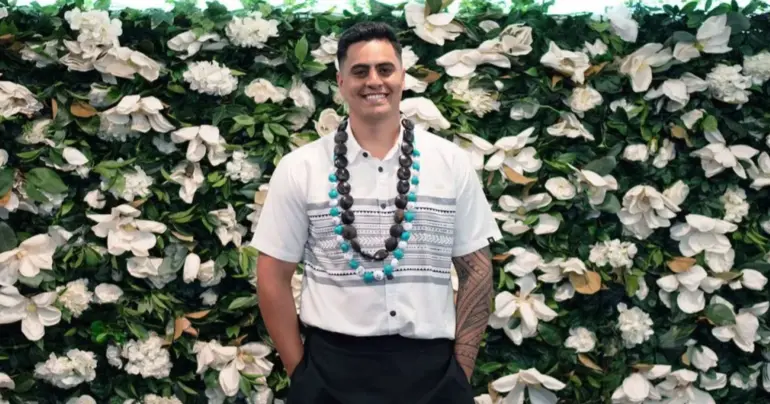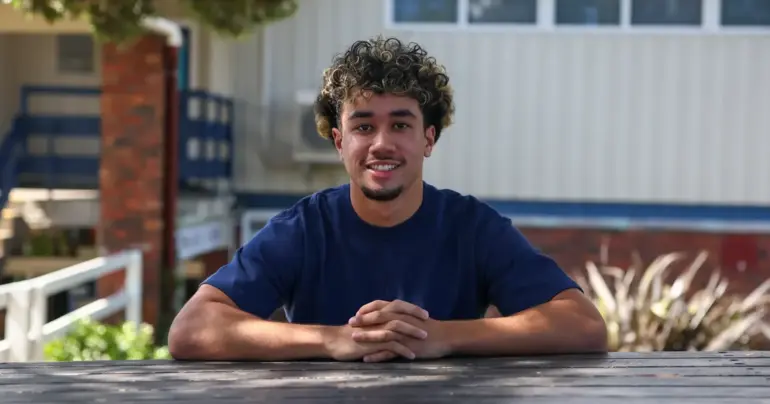U.S.P. launches 200-level Anti-Corruption Course.
 By Sialai Sarafina Sanerivi
•
19 June 2021, 1:00PM
By Sialai Sarafina Sanerivi
•
19 June 2021, 1:00PM
A 200-level anti-corruption course was launched virtually this week by the University of South Pacific [U.S.P.] in partnership with the United Nations Pacific Regional Anti-Corruption Project (UN-PRAC).
The new course is a part of U.S.P.’s Leadership, Governance, and Human Rights (L.G.H.R.) programme to insert anti-corruption knowledge at the tertiary level in a holistic manner throughout the Pacific.
The Acting Vice-Chancellor and President, Dr. Giulio Masasso Paunga officially launched the course on 16 June 2021.
Said Dr. Giulio, the new anti-corruption course aims to enhance the understanding of future leaders on the topic of corruption, its causes, and effects on the wider society.
"Education plays a key role in shaping our futures for tomorrow, and at U.S.P., our mission is to shape our Pacific futures, by preparing students, staff, and alumni to become inspirational agents of positive change, leading to innovative, cohesive, resilient, and sustainable communities," said Dr. Giulio.
"Systemic corruption has undermined good governance, democracy and developments in the Pacific.
It displaces precious resources and keeping countries from fulfilling their potential.
"This is why this course on corruption and anti-corruption is very important. We need the future leaders of the Pacific to understand corruption in a holistic manner."
Moreover, Dr. Giulio stated that the course is designed to teach students about the various forms of corruption, its causes, and its effects on the wider society.
Furthermore, the course examines anti-corruption laws and policies in the Pacific Island countries and what leaders and individuals should do to address corruption.
"The more transparent and democratic a society is, the more resilient it can be against corruption. The more corruption is restrained, the more open our societies can be to prosper."
“Education is considered as a key tool for preventing corruption and promoting the values of transparency, integrity and ethics in the Pacific Island countries (P.I.C.s). This new anti-corruption course at USP aims to help prevent corruption by informing future Pacific leaders of the societal detriments of corruption and the benefits of collective anti-corruption action,” said U.N. Development Programme (UNDP) Pacific Office in Fiji, Anti-Corruption Adviser, Ms. Sonja Stefanovska-Trajanoska.
“While the course will address global issues relating to corruption, it will strongly focus on the Pacific. The course enables the key work of the United Nations Convention against Corruption (UNCAC) and Sustainable Development Goal 16 on peace, justice, and strong institutions to be localized for those engaged in leadership training,” said Ms. Annika Wythes, the Regional Anti-Corruption Adviser for the UN Office on Drugs and Crime (UNODC).
The Diploma in Leadership, Governance, and Human Rights (DLGHR) was initiated in 2013 at a Diploma level at USP and currently has five core courses.
“This course will be delivered in blended mode to the 12-member USP countries. This will ensure that all interested Pacific Islanders can have access to these courses. Looking forward, the DLGHR may be potentially upgraded to a Bachelor’s level degree,” said Associate Professor Dr. Sandra Tarte, Acting Head of School of Law & Social Sciences at USP.
The UN-PRAC Project is a joint initiative by UNODC and UNDP supported by the Australian and New Zealand Governments.
The course will open for the first time as a flexi-course in July this year.
Tags
 By Sialai Sarafina Sanerivi
•
19 June 2021, 1:00PM
By Sialai Sarafina Sanerivi
•
19 June 2021, 1:00PM











